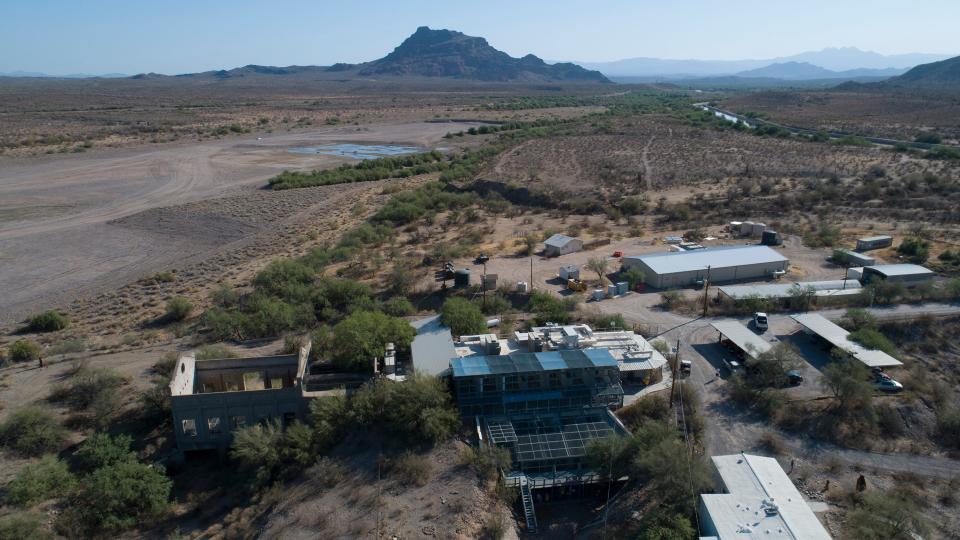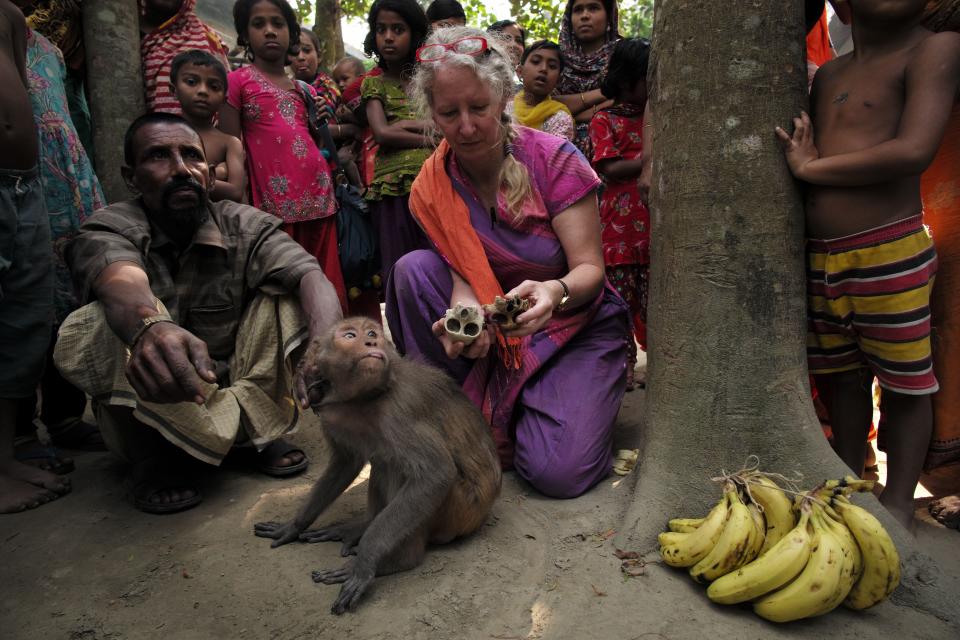Federal investigation launched into monkey farm run by University of Washington
The National Institutes of Health has opened a federal investigation of the University of Washington and its primate facility located north of Mesa after an Arizona Republic investigation revealed widespread disease that has the potential to compromise science at one of the nation's largest facilities for breeding pigtailed macaques.
The National Institutes of Health's Office of Laboratory Animal Welfare confirmed last week it launched the investigation after the People for the Ethical Treatment of Animals filed a complaint shortly after the Arizona Republic published its story in October.
The seven-month investigation found that Valley fever, a common flu-like illness caused by a fungus from the soil in the desert around Phoenix, has run rampant among the macaque colony, resulting in higher than expected rates of sickness and death.
At least 47 monkeys have died from the illness over the past eight years.

The illness at the Arizona facility also threatens the results of tens of millions of dollars in research aimed at finding cures and vaccines for some of humankind’s most serious viruses and diseases: AIDS, HIV, hepatitis, Zika, Ebola and even COVID-19, and it has raised concerns about whether the Arizona site is the right location for the largest pigtailed macaque breeding facility in the United States.
But the Republic's investigation found more than that, including:
• The monkeys at the Mesa breeding facility are drinking well water tainted with perchlorate, a contaminant leached from ponds containing rocket fuel runoff from an adjacent defense contractor. Despite recommendations that a water treatment system be installed at the breeding facility in 2016, no such precaution has been taken.
•The primate center's long-term financial situation is in disarray, according to federal reports. Staff turnover has been high. Key researchers have left and leadership positions have remained open until just recently. Morale remains low as staff has reeled from years of poor decision-making and an embarrassing public sexual harassment scandal.
• The primate center has run afoul of state and local regulators. It was cited in May for failing to alert Washington state regulators that macaques imported into the state had Valley fever. And it has been cited by federal regulators for conduct detrimental to animal welfare. At least five monkeys have died since 2017 because of poor care or improper oversight.
The NIH's Office of Extramural Research said in a statement "the NIH takes very seriously all allegation of non-compliance and investigates every allegation."
"The NIH Office of Laboratory Animal Welfare has opened an investigation regarding the allegations sent by People for the Ethical Treatment of Animals (PETA)," the statement said. "OLAW does not comment on allegation while an investigation is underway."
NIH said that once the investigation is closed the source of the allegations — PETA — would be informed of the outcome. The outcome would not be released publicly by NIH but records of the closed investigation would be available under the Freedom of Information Act.
The University of Washington spokesman Tina Mankowski said in a statement: “The University of Washington provided answers to questions that the NIH’s Office of Animal Welfare had related to a letter they received that referred to a story in the Arizona Republic. They thanked us for our prompt response and said that no additional action is required.”
OLAW certainly knew about some of the incidents that were reported in the Arizona Republic series because several of the self-reported violations sent to OLAW by UW were some of the source documents for the investigation.
For example, several OLAW reports showed that macaques had died because of staff carelessness or lack of oversight.
In March 2019, a macaque was scheduled for surgery, but scientists did not have it fast properly overnight due to a miscommunication. The monkey went into respiratory arrest, throwing up and then breathing in its vomit. Medical staff stabilized the animal, but it later died. Reports showed the animal inhaling its food was a contributing factor to its death.
At the Arizona facility in November 2018, staff members found a 2-year-old female pigtailed macaque with its arm caught in the metal mesh of its cage. The animal was sedated and the mesh was cut to free its arm, according to a report made to the Office of Laboratory Animal Welfare. The animal fractured its arm at the growth plate and couldn’t move its fingers on the affected side and was ultimately put down.
In April 2018, a monkey accidentally strangled itself on a foraging device that had not been properly installed. The pigtailed macaque pulled a chain holding the device into its cage, entangled its jaw and strangled itself, a report from the Office of Laboratory Animal Welfare said.
Lisa Jones-Engel, a senior science adviser of primate experimentation for PETA, said she expected this investigation to be different from the self-reported violations made to OLAW because "the sheer scope of this is so phenomenal that they are going to be forced to respond and respond forcefully."

The problems with Valley fever infecting the monkeys is systemic as is the fact that the monkeys are drinking water that is contaminated with perchlorate, she said. Jones-Engel said she doubts that OLAW had ever been informed about the widespread Valley fever infections or the perchlorate in the macaques' drinking water.
In addition to the OLAW complaint, PETA filed complaints in the last three weeks with the NIH's Division of Program Integrity and the U.S. Department of Health and Human Services' Office of the Inspector General.
Jones said PETA filed the additional complaints because OLAW focuses only on animal welfare and "that's only one part of this."
"The other issue is this kind of systemic failure within NIH to address the fact that they continued to fund this facility for a decade, even though they know themselves, their own reports, that the animals were contaminated in a way that was going to make them inappropriate and unreliable models," Jones-Engel said. "That's not something OLAW can address. That's not what they do."

Michael Budkie, co-founder of Stop Animal Exploitation Now, said OLAW's investigation could take about three months. Stop Animal Exploitation Now has filed numerous complaints with both OLAW and the U.S. Department of Agriculture.
He said that OLAW typically does not do the type of things that compel compliance from laboratories that the Department of Agriculture does when it issues fines against laboratories that have violated the Animal Welfare Act.
He said that the USDA's responsibilities include making sure laboratories comply with the Animal Welfare Act while OLAW is part of the federal government that is responsible for funding animal experiments.
"In the end, I find it unlikely that they would do anything that will force UW to make significant changes," Budkie said. "I could be wrong ... I hope they surprise me."
Contact reporter Rob O'Dell at rob.odell@arizonarepublic.com or on Twitter @robodellaz
This article originally appeared on Arizona Republic: National Institutes of Health will investigate Mesa monkey farm

